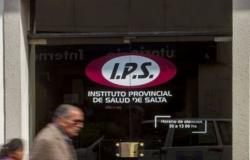
“From the Government, I say it very responsibly, we are willing to close these issues as soon as possible, giving certainty to families and the business world and I invite the opposition to achieve this, so that it will be a joint victory where we do not only seek that one Take the photo and let one attribute it as their own, let it be a triumph for all of which our compatriots feel proud. Let us feel pride again in the profession of politics because we are capable of reaching an agreement.”
That was what President Gabriel Boric said this Thursday at the Enade business meeting, referring to the fiscal pact and the pension reform. The businessmen valued the President’s speech, but called for the ideas presented to be concreted and not just the words. During his speech, the Head of State mentioned the pension reform on five occasions, as it is one of the initiatives that the government has as a priority to move forward in these two remaining years of its mandate.
However, since the pension reform reached the Senate and began to be seen in the Labor Commission in March, it has not had much movement. The government intended to vote on the idea of legislating in mid-April, in an attempt to speed up the process, but the Chile Vamos senators resisted.
Since the opposition is the majority in the Labor Commission, since three of its members are from Chile Vamos, versus two senators who are aligned with the Executive, the government had no other option than to sit down and talk to try to reach a prior agreement. That’s what they’ve been up to this last month.
In these conversations, the Minister of Finance, Mario Marcel, has taken a more leading role in the pension reform versus the role he played in the Chamber of Deputies, where it was almost only the Minister of Labor, Jeannette Jara, who was in charge. to talk to the deputies. Now, however, it is Marcel and Jara who are engaging in conversations with opposition senators.
What the opposition has asked of the government is to be able to reach some agreements on different issues prior to voting on the idea of legislating, since they believe that they are not in a position to generally approve the project as it came from the Chamber of Deputies.
For this reason, and with the objective of organizing the debate within the Labor Commission and also outside it, that is, in the negotiations that occur in parallel, the senators and the government decided to divide the project into several subtopics, to go addressing these different points with experts and seeing how each issue can be modified, reaching agreements with the government on some of them, in order to vote on the idea of legislating.
That is one of the issues that the senators have been agreeing on with the government in the meetings they have held, but there are still conversations to finish settling these issues, as well as the work calendar and dates on which these topics will be addressed.
The idea that the government has is to be able to present this schedule at the end of the district week, but the Executive assures that this is not yet completely defined, and that in reality it will depend on how the conversations with the senators progress next week to be able to see if they finally present said calendar during the following week, or if that is done a little later.
The senators of Chile Vamos, on the other hand, hope that this definition will be announced during the following week, without nuances. This was also implied this Wednesday by the president of the Labor Commission, Iván Moreira (UDI), at the beginning of the session, when he said that he hoped there would be “news from the return of the regional week” that begins on Monday next.
Moreira commented on that occasion: “I hope that by the end of the district week, based on what we colleagues have discussed, we hope to have some news, especially on the methodological issue, regarding the treatment of this project.” He also said that the Commission has asked several experts to present on the reform, but it has been difficult for them to obtain positive responses, because “everyone is waiting for greater clarity in the discussion of the reform,” he pointed out. And he emphasized that “it has been very difficult for us” for guests to come because “everyone expects there to be news.”
Now, dividing the reform into different topics, the idea is to be able to invite experts on each of them, and see what can be improved in each topic of the project.
In the last session, Moreira commented that the idea is to invite two people per session, and if necessary the session can be held not only on Wednesdays, but also on Mondays. Among the confirmed future guests are the president of the Pension Advisory Council, Guillermo Larraín, and other members of said Council, for Wednesday, May 8. In addition, they are in talks with the Santiago Chamber of Commerce to define a date. Meanwhile, on May 15, the economist Andrés Solimano and the representative of the Sol Foundation, Marco Kremerman, were summoned.
However, in the last session of the Labor Commission, which occurred this Wednesday, the spirits of the Chile Vamos senators were not going through their best moment. This occurred due to the opinion issued by the Labor Directorate for the 40-hour law, which interpreted that if there is no agreement between employers and workers, the reduction of the working day from 45 to 44 hours that came into effect this Friday, has It must be one hour on one of the 5 days that form part of the weekly schedule, and cannot be distributed over 12 minutes a day. For this reason, the Labor Commission summoned the director of Labor and Minister Jara.
Senator Luciano Cruz Coke (Evópoli) said in said instance that this is “an opinion that changes criteria,” and stated: “It seems here that the regulatory norm wants to distort not only the spirit of the law, but also the strict letter.” of the norm, and above all, the third transitional article, which is very clear in this regard. So what ends up happening? Finally, companies are going to be forced to adapt to what is determined, beyond what the norm says, this is going to be controversial, it is going to end up in court, because some auditees are going to say that this is not the spirit of the law. rule”.
Finally, Cruz Coke said that in reality “the most serious thing of all (…) is that finally this is a cannon shot at the waterlines of trust, of what can be agreed upon in this Commission.”
Although the government initially hoped to have the Congressional project completely submitted in June, that no longer happened, since the deadlines did not allow. Instead, Senator Moreira has previously said that he hopes the project will be approved or rejected in July in the Labor Commission.
This period also seems limited taking into account the way in which the conversations between the government and the opposition have been taking place, since until now there has not been much debate on the underlying issues, since they have rather focused on defining the form of carry the discussion forward. However, the following week everything could be reactivated, when the work schedule is finally ready. Thus, substantive negotiations could begin between the Executive and Chile Vamos, which would return to the debate the distribution of the 6% additional contribution, and the industrial reorganization, where, for now, neither of the two parties seem to want to give their arm. to twist





